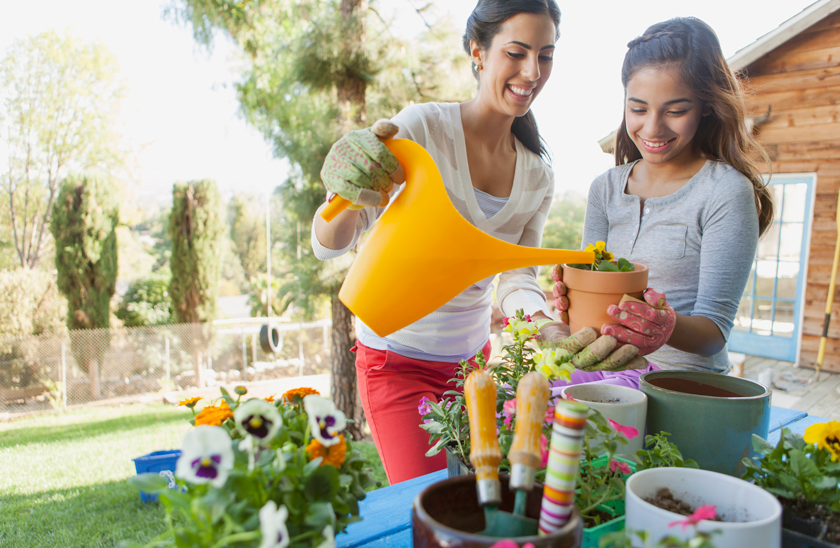
Gardening for Stress Relief: How Green Spaces Can Improve Your Well-being
In our fast-paced and stressful world, finding effective ways to manage stress and improve our well-being has become increasingly important. While various techniques and activities can help alleviate stress, gardening is an often overlooked but highly effective method. Engaging in gardening activities and spending time in green spaces has been proven to have numerous physical, mental, and emotional benefits. Gardening has therapeutic benefits that go beyond mere aesthetics. The physical activity involved in gardening, such as digging, planting, and watering, promotes the release of endorphins, the body’s natural feel-good hormones. This physical exertion acts as a natural stress reliever, reducing anxiety and improving overall mood.
In this article, we will explore how gardening can be a powerful tool for stress relief and how it can contribute to an overall sense of well-being.
- One of the primary reasons gardening is so effective in reducing stress is its close connection to nature. Spending time outdoors and immersing oneself in the beauty of green spaces can have a calming and soothing effect on the mind. The fresh air, the gentle breeze, and the vibrant colours of flowers and plants create a serene environment that helps to alleviate stress and anxiety.
- Scientific studies have shown that being in nature and engaging in gardening activities can lower cortisol levels, a hormone associated with stress, and promote the release of endorphins, which are natural mood enhancers. Growing your own vegetables is rewarding and allows you to enjoy fresh and organic produce. Tomatoes, peppers, lettuce, and herbs like parsley and cilantro are great options for home vegetable gardens.
- Gardening is also a highly engaging and hands-on activity that encourages mindfulness and living in the present moment. When tending to plants, individuals are required to focus their attention on the task at hand, allowing their minds to be fully present in the present moment. This mindfulness can help shift attention away from worries and stressors, providing a temporary respite and promoting relaxation.
- In addition to its mental and emotional benefits, gardening also offers numerous physical advantages. Engaging in gardening is a low-impact exercise that can help improve flexibility, strength, and cardiovascular health.
- Digging, planting, and weeding all involve physical movements that provide a workout for the body. Regular physical activity, even in the form of light gardening, has been shown to release endorphins, improve sleep patterns, and boost overall energy levels. It also promotes a sense of connectedness with one’s body, enhancing body awareness and fostering a healthier lifestyle.
- Whether it’s planting seeds, watering plants, or pruning flowers, the act of gardening allows individuals to find solace in the simplicity and beauty of the natural world. While growing herbs in your garden add flavour to your culinary creations and offers a refreshing fragrance. Herbs like basil, rosemary, and mint are easy to grow and can be used for cooking or as natural remedies.
- Furthermore, gardening provides a sense of purpose and accomplishment, which can significantly boost self-esteem and overall well-being. Watching outdoor plants grow and thrive as a result of one’s efforts can bring a deep sense of satisfaction and pride. Gardening also offers a creative outlet, allowing individuals to express themselves through the arrangement of plants, the choice of colours, and the design of their garden spaces. The act of creating and nurturing life can be incredibly fulfilling and provide a much-needed sense of purpose and achievement.
- Gardening can be a highly therapeutic activity for individuals dealing with stress, anxiety, or other mental health conditions. Many studies have shown that gardening can positively impact mental health, reducing symptoms of depression and improving overall psychological well-being.

- Your garden can become a personal sanctuary, a haven of peace and tranquillity where you can escape from the pressures of the outside world. Design your garden with intention, incorporating elements that bring you joy and serenity. Whether it’s a cosy seating area, a water feature that trickles soothingly, or a collection of fragrant flowers, curate a space that evokes a sense of calm and offers respite from daily stressors.
- Nurturing and caring for living plants, like spider plants, herbs and bonsai tree, can instil a sense of purpose, hope, and optimism. It gives individuals a sense of control and mastery over their environment, which can be particularly beneficial for those struggling with feelings of helplessness or lack of control.
- Engaging in gardening allows us to contribute to environmental stewardship in our own small way. By creating green spaces and cultivating native plants, we support biodiversity, provide habitats for wildlife, and improve air quality. Knowing that our actions positively impact the environment can bring a sense of purpose and fulfilment, further enhancing our well-being.
Conclusion
Gardening is a powerful tool for stress relief and improving overall well-being. Individuals can experience a wide range of mental, emotional, and physical benefits by connecting with nature, practising mindfulness, and engaging in physical activity. Whether it’s a small container garden on a balcony or an expansive backyard oasis, the act of gardening offers a sanctuary of tranquillity and respite from the pressures of daily life. So, grab your gardening tools, get your hands dirty, and reap the rewards of this wonderful activity that beautifies your surroundings and nourishes your soul. Whether you’re planting flowers, growing your own vegetables, or creating a serene garden space, gardening offers a healing escape from the stresses of everyday life.



